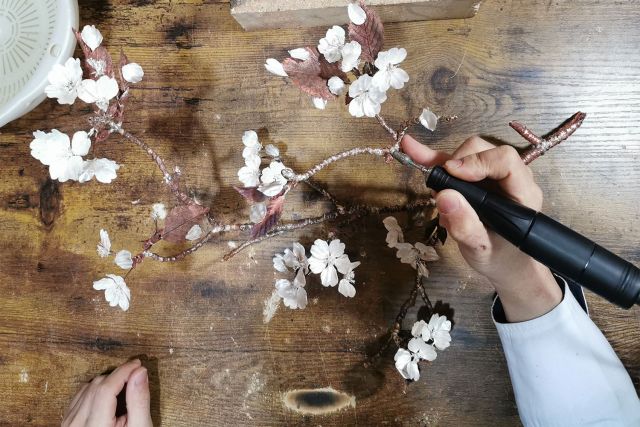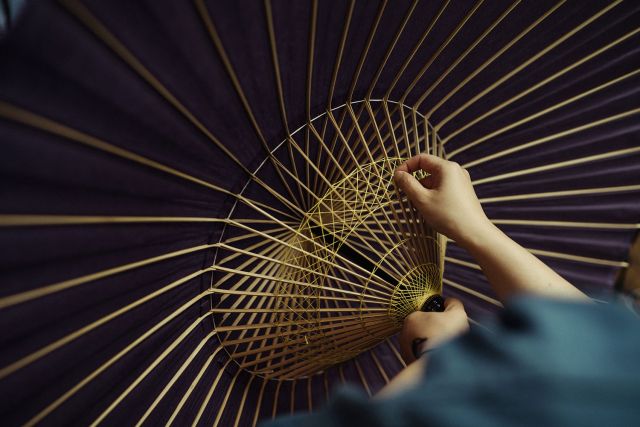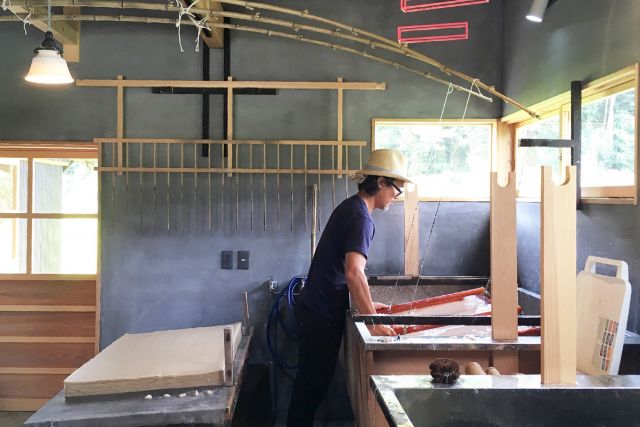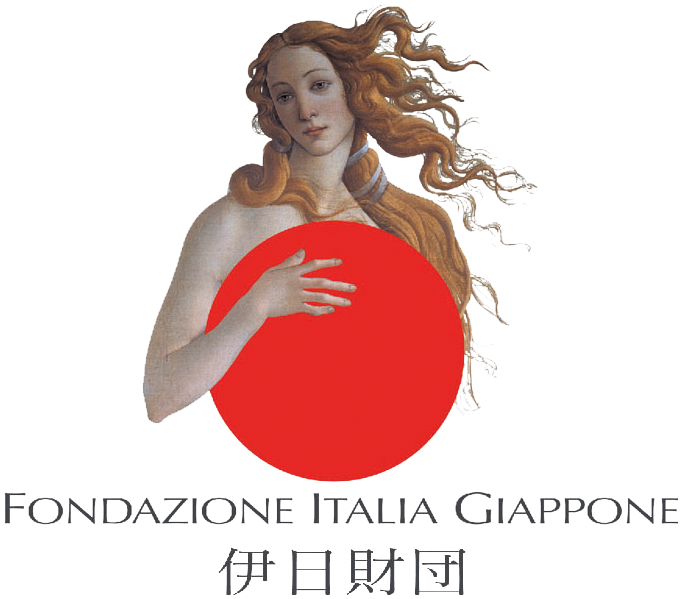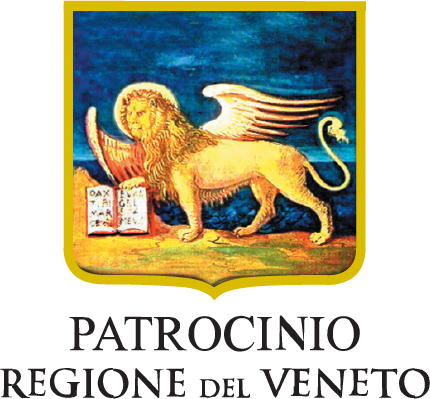After forming the clay with a potter's wheel, the rim is formed into a diamond shape by hand. All glazing is done with a ladle. The bottom of the bowl is carved with a kanna (Japanese hand plane).
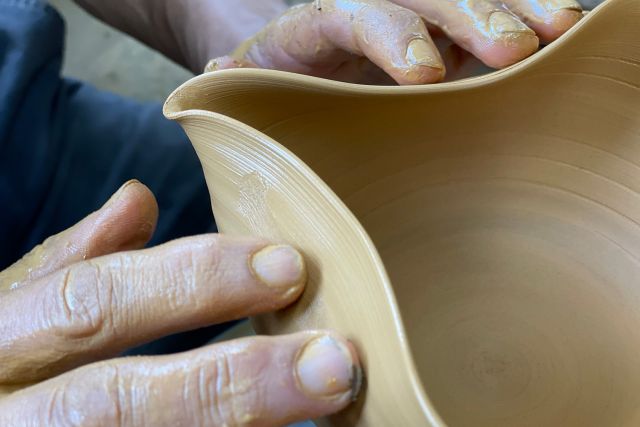
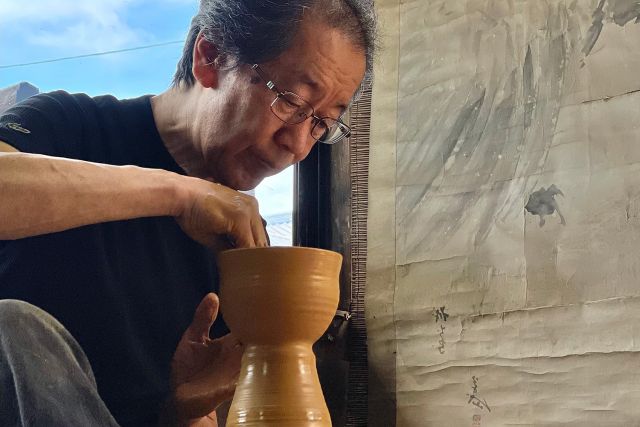
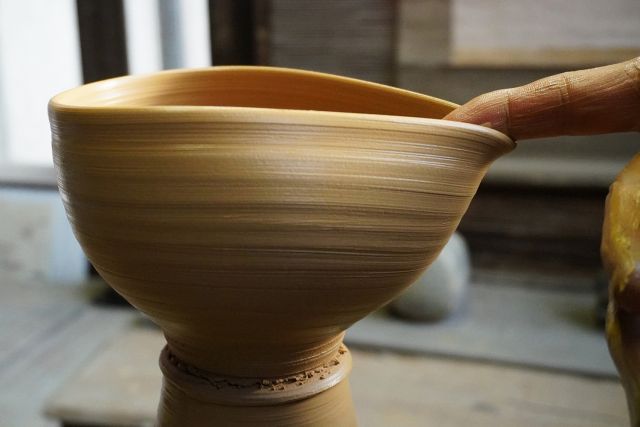
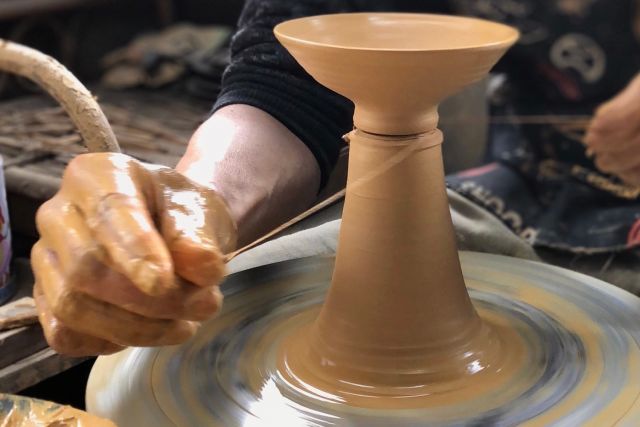
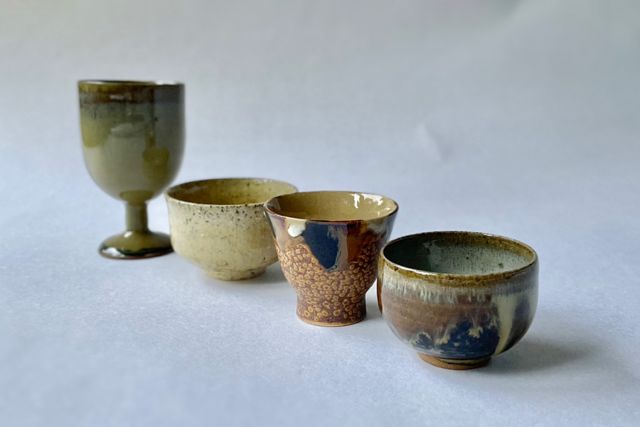
Shinobu Takatori
- Ceramicist
- Toho, Japan
- Master Artisan
By appointment only
+81 946742211
Elegant tea ware in amber tones
- • Shinobu carries the master name Takatori Hachinojofunin XIV as he is the 14th generation to run the workshop
- • The Takatori Hassen kiln has over 400 years of history
- • Takatori ware is a utilitarian tea ware
Shinobu Takatori is the 14th generation potter of the Takatori Hassen kiln based in Asakura county of Fukuoka prefecture. During the Japanese invasions of Korea in the late 16th century, Korean master potters were brought to Japan to lead ceramic production. By the 18th century, as the demand for high quality tea ceremony tools for generals and feudal lords grew, Takatori ware became renowned for its kirei-sabi (elegant beauty) style, perfected by tea master Kobori Enshu. Alongside ceramics production with stylistic influences from Korea and China, and as one of Enshu’s Seven Kilns, Shinobu carries on the master’s philosophy. He creates teaware with refined, simple and elegant forms, consisting of earth-tone and dark amber glazes that form poetic and abstract landscapes.
Read the full interviewWorks
Photo: ©Takatori Hassengama

Photo: ©Takatori Hassengama
The base is a relatively coarse clay formed on a potter's wheel, glazed in sections with a straw-coloured glaze, a white glaze and an amber glaze.

Photo: ©Takatori Hassengama
This karamono style tea caddy has a fine structure with an ivory lid and a gold foiled inner-side. The clay is formed on a potter's wheel and has a lipped base. It is glazed by creating gradients with an amber glaze.

Photo: ©Takatori Hassengama
This small deep bowl is formed on the potter's wheel, three points of the edge are pressed, and incisions are made in three sections to form petals.

Photo: ©Takatori Hassengama
The base of the bowl is shaved with a planer, giving the bowl a sharp, warrior-like appearance. It is copy of a chuko-meibutsu which is the term for excellent tea ware selected by Enshu Kobori.





